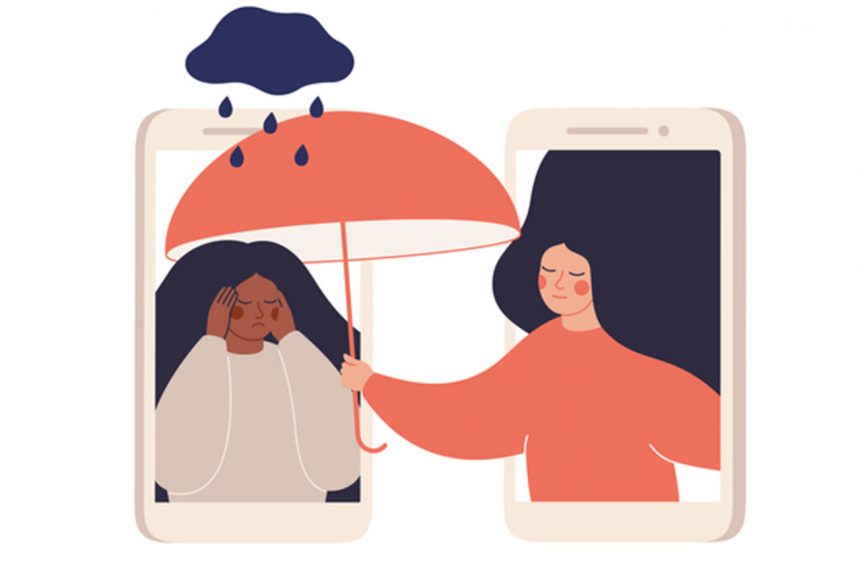Virtual Mental Health Benefits for Employers & Employees
Seventy-nine percent of employees surveyed by McKinsey and Company say a roll-out of a campaign to abolish stigma in the workplace about mental health would be valuable. However, only 23% of employers surveyed said they had started an anti-stigma campaign in the previous year. This points to a disconnect that can be lessened with virtual mental health supported by employers.
Read on to learn more about how including virtual mental health benefits at your company can help boost productivity, workplace culture, and more.
How Virtual Mental Health Support Improves Employee Engagement
When a company does support virtual mental health, the parameters with which they show that support can help sustain or improve employee engagement.
A workplace culture that values and supports its employees’ mental health includes providing some emotional understanding and physical privacy for dialogue with care providers. Flexibility and emotional support that enhances employee engagement could come in the form of a supervisor expressing understanding to their staff member when flexibility is needed for appointments with their provider.
- Employer support of privacy could be an empty office with a phone and laptop, with scheduling available for staff to reserve the room for their virtual appointments.
- The Company could also state that when with care-provider employees are welcome to affix temporary do-not-disturb signage in messaging systems and on their office doors.
- How supervisors approve time “away” from work might need to be adjusted to include less questioning of the employee if showing support is a high priority for the business.
A meta-analysis of 452 studies of psychotherapy—having been provided virtually—found patient satisfaction rated high while the quality of care was also equivalent to in-person care. Demand for mental health practitioners in the US has increased exponentially due to COVID-19. As such, the virtual mental health model has enabled the industry to scale to meet patient needs. Clinicians have become skilled at using technology to support the widespread increase in demand for mental health care due to COVID-19. The two broad categories of technology used to scale virtual mental health care are:
- Text messaging, referred to as “asynchronous” because it is not a live conversation.
- Video or telephone care is “synchronous,” indicating live real-time conversations.
Companies are increasingly offering specific telehealth mental health benefits to their employees. This gives employees increased access to providers they can meet with virtually with no extra travel time needed at a very reasonable out of pocket cost. These benefits are widely appreciated by employees, particularly when coupled with increased acceptance at the workplace.
Boost Productivity at Your Company with Virtual Mental Health
Virtual mental health accomplished with less time away from work equals increased productivity. For example, employees can schedule their virtual mental health appointments conveniently without concern for travel. In turn, employers experience decreased time off for appointments when travel time is removed from the equation.
Productivity also increases when employees receive the mental health treatment they need. With proper care, sick days decrease and engagement soars. Allowing employees to receive the care they need in a compassionate manner also increases their loyalty and dedication to their employer.
Learn More About Virtual Mental Health Benefits
At benefEx, we are industry leaders with decades of experience in the insurance field, and we’re ready to talk with you about virtual mental health now. It’s clear—virtual mental health benefits provide a win-win for your employees and your company. Contact us today to explore the best options for your business!

